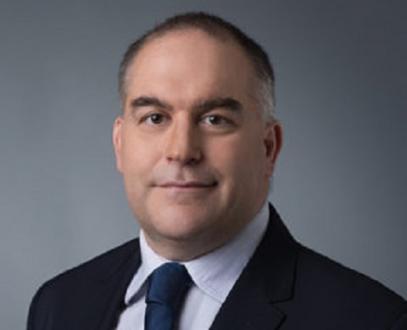PPLI – an overlooked planning tool

Richard Grasby of RDG Fiduciary Services
Apr 24, 2020
Richard Grasby, Founder of wealth solutions provider RDG Fiduciary Services, and Samy Reeb, Partner at 1291 Group, a leading advisory firm on private wealth solutions, extol the significance of wealth planning, noting some of the key tools available to wealthy individuals, and the prominent role that private placement life insurance can play.
By Richard Grasby, RDG Fiduciary Services Limited and Samy Reeb, 1291 Group
Wealth planning is a crucial step to be taken by clients at any time. In the present climate it has become even more of a priority for many. But what are the things which can be done and why should Private Placement Life Insurance (“PPLI”) be on the menu? The below is a brief summary and specific advice is of course needed!
The standard wealth planning tool kit would typically consist of some or all of the following:
- Will(s);
- Lifetime trust(s) / Foundation(s);
- Relevant letters of wishes;
- Appointments of guardians for children;
- Letters of nomination for pension benefits / employee benefit schemes;
- Medical directives / enduring powers of attorney;
- Lifetime gifts; and
- Insurance.
Insurance to most is a standard risk management device so this would most commonly be life insurance and/or critical illness insurance. PPLI has an element of life insurance to qualify as insurance but is far more than a risk management device. Why might PPLI be suitable and even preferable to other options?
What is PPLI?
In simple terms it is an investment linked insurance policy. It is customized to each client and is therefore only suitable for relatively wealthy clients. Assets are held by the insurance company and not the holder of the policy. The policy can also be held by a trust or a company as explained further below.
How might PPLI be a better or complimentary planning tool to others available?
Wills – wills only take effect on death. Preparing a will is seen as bad luck in many cultures. Probate is needed in many countries resulting in a delay in family members receiving assets. There can also be challenges to the will. Under PPLI assets will be transferred immediately to those nominated in the policy.
Trusts – trusts are seen by many as complicated and are not familiar to clients and advisers in many jurisdictions. Clients are often reluctant to entrust strangers with their assets and pay the fees - particularly where retaining control is discouraged. PPLI is a contractual arrangement which can be understood more easily. Tax and reporting for trusts can be very complicated and in many jurisdictions is not clear. PPLI can offer some clarity in this regard – many jurisdictions have a clearer analysis for insurance proceeds than trust distributions. FATCA/CRS reporting may also be simplified. During the life of the policy, it is clear that the insurance company is the beneficial owner of the assets.
Gifts - gifts need to take place immediately and may not be suitable or possible in the case of minors and unborns. Under PPLI, the recipients don’t benefit immediately, and the amounts can be changed.
If structured correctly PPLI can provide tax free growth (including benefits of double taxation agreements not available to many offshore jurisdictions), asset protection, simplified CRS and FATCA reporting and probate-free provision for family members via a method understood by many clients. A PPLI policy can hold virtually any asset if structured correctly (and subject to any local restrictions). Withdrawals can be made during the life of the policy.
So how can PPLIs be owned? In most cases they would be held by an individual but there is no reason why a PPLI could not be held by a trustee or a company.
In fact, it is useful to highlight some of the potential benefits of holding one or more PPLI policies via a corporate vehicle structured as a type of fund vehicle. There are many advantages of bespoke fund structures for families and family offices (such as confidentiality, segregation, pooling, isolation, flexibility) but what about using such a structure as a means of owning a PPLI?
Subject to compliance obligations (both for the PPLI provider and the corporate service provider) and satisfying insurable interest requirements, the shares in the fund can be issued to allocate wealth to family members with in built flexibility using mechanisms such as pre-emption rights, put and call agreements and compulsory redemption provisions. To avoid probate on the death of shareholders it may be possible to utilize specific corporate vehicles and/ or multiple share classes. Perhaps the value of the PPLI(s) could be utilized to calculate a “NAV” per share. Holding investments via a PPLI gives the ability of divesting value but retaining control of the underlying investments. Using a PPLI gives the fund the net benefit of the PPLI insurer’s access to double tax agreements which the fund would not have if it held the investments directly. Fund regulations would need to be complied with in, for example, the Cayman Islands or BVI but this should not be insurmountable. Again, advice is needed!
Contact the Authors:
Richard Grasby
Founder
RDG Fiduciary Services
Email: [email protected]
LinkedIn: www. linkedin.com/in/richard-grasby-23231726
General: +852-6596-7517
Samy Reeb
Partner
1291 Group
Email: [email protected]
LinkedIn: www.linkedin.com/in/samy-r-7302044





